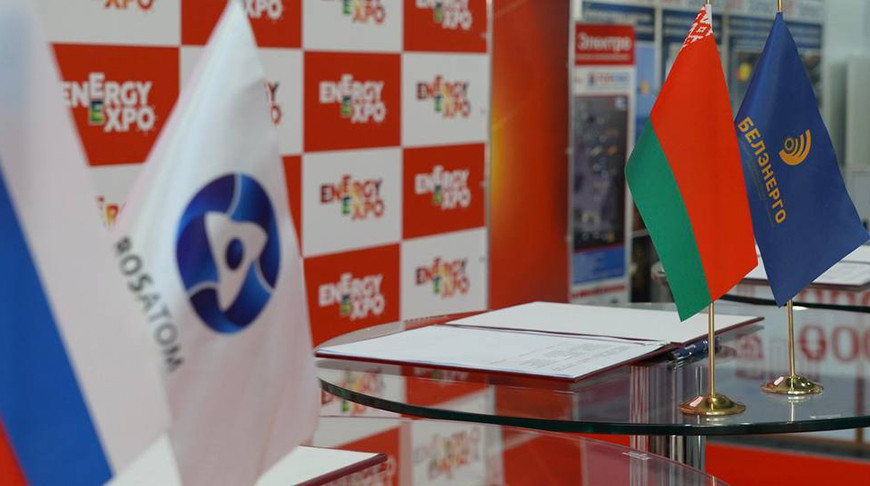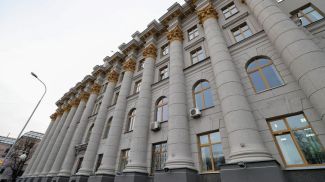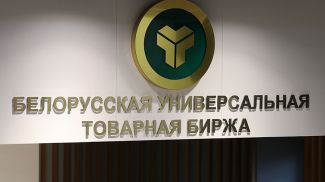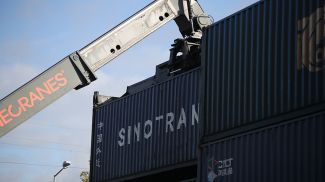
Photo courtesy of Belenergo
MINSK, 17 October (BelTA) – The Belarusian state power engineering group Belenergo, OOO Rusatom Bel (Rosatom’s country office in Belarus), and OOO Rusatom Information Security Systems (RUSIB) have signed an agreement on strategic cooperation for the sake of implementing joint projects for modernizing and digitizing the infrastructure of Belarus’ united energy system. The document was signed on the sidelines of the Belarusian Energy and Ecology Forum in Minsk, BelTA has learned.
The document provides for joint work on projects meant to modernize and digitize Belarus’ energy infrastructure. The parties have agreed to jointly analyze and introduce the best practices in equipment operation and the optimization of business processes, in particular, by actively using digital tools. Apart from that, Belenergo and Rosatom will work out and test new high-tech solutions for modernizing and digitizing energy installations.
Belenergo Director General Andrei Panchenko noted that the digitization and modernization of the Belarusian energy system is a priority task. “Our Russian partners always provide assistance to us. The mutually beneficial cooperation will advance,” he said.
OOO Rusatom Bel Director Stanislav Levitsky said: “Belarus is now actively implementing a government program on improving the energy consumption of all sectors of the economy. Efficient implementation of the program needs an appropriate infrastructure. Rosatom in partnership with Belenergo and the Energy Ministry is ready to offer the most innovative solutions, including those based on advances of Belenergo and Belenergoremnaladka, for the sake of modernizing the Belarusian energy system and enabling manufacturing cooperation. And doing work in the territory of the Russian Federation and third countries later on. I am talking about the digitization of power substations, about the modernization of concrete power grid installations. We have a large product lineup, a great deal of import-substituting products, which allow substantially reducing the risks inherent in using a broad range of imported equipment. The agreement creates a solid base and the legal foundation for this work.”
OOO RUSIB Director General Pavel Zhegalin also remarked that the agreement is designed to improve energy efficiency, reliability, and accident-free operation, and to contribute to import substitution efforts. “It is impossible to tackle it singlehandedly. This is why sharing the best practices and technologies is very important. They will produce a decent result for both states. Creating jobs in Belarus’ territory will also be an important task. Competition is very tough in the sphere of human resources in the territory of Russia now. This is why transferring technologies to Belarus, training the local personnel, and setting up genuine competence centers represent a priority task,” he emphasized.
The state power engineering group Belenergo is a Belarusian state energy company in charge of managing business activities of Belarus’ energy system.
The Russian state corporation Rosatom is a holding company with versatile business interests. It combines power engineering, mechanical engineering, and civil engineering assets. Its strategy provides for developing low-carbon energy generation, including wind energy. Rosatom boasts the world’s largest portfolio of contracts for building nuclear power plants: as many as 39 nuclear power plant units (including six low-capacity ones) in ten countries are at various stages of implementation. Rosatom’s operation also includes the manufacturing of innovative non-nuclear products, logistics and development of the Northern Sea Route, and the implementation of ecological products. The corporation unites over 450 enterprises and organizations that employ a total of over 350,000 people.
OOO RUSIB is a company belonging to the industrial automation and electric technology division of the Russian state corporation Rosatom. The company’s core business includes the comprehensive automation of industrial installations and the provision of solutions for non-nuclear energy industry, including the development, assimilation, and support for projects, the organization of all kinds of tests.













